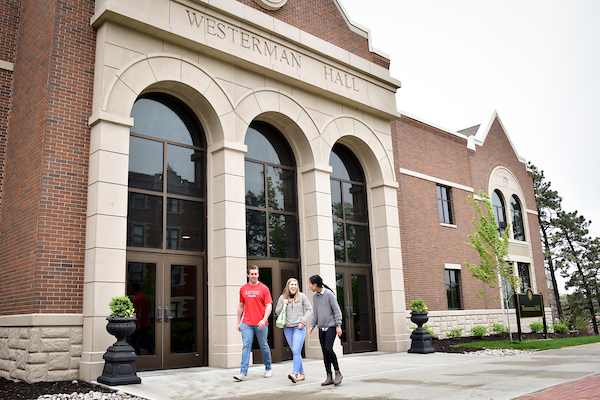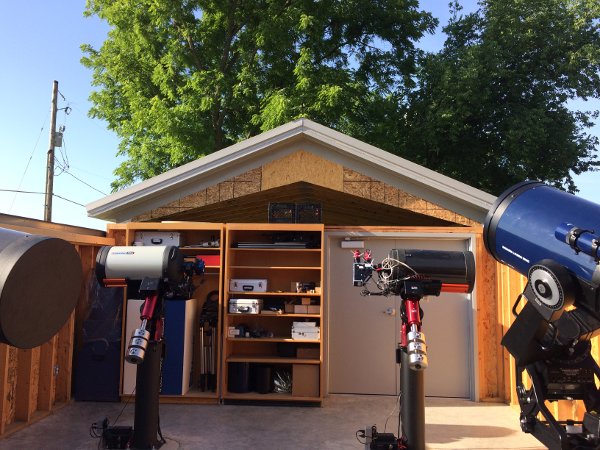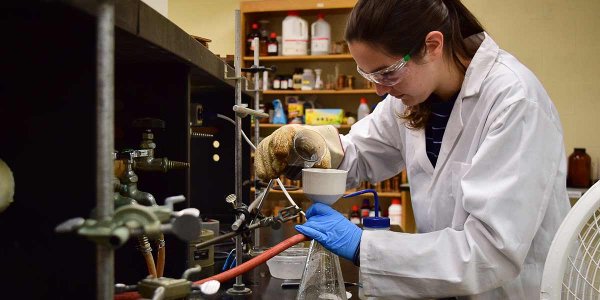
The recently expanded and renovated Westerman Hall of Science & Engineering provides Benedictine College students with the best STEM building of any small college in America. From the high-tech, state-of-the-art auditorium to the laboratories and classrooms, the 100,000 square foot facility is home to Astronomy, Biology, Biochemistry, Chemistry, Computer Science, Mathematics, Physics, and Chemical, Civil, Electrical and Mechanical Engineering.
At the time of its dedication, Benedictine College President Stephen D. Minnis said, “This building allows us to capture the vision of being THE Catholic liberal arts college that educates future doctors, engineers, scientists and health care professionals for the 21st century.”
“At Benedictine College, we believe faith, morality and ethics are just as important in the sciences as in every other part of our lives,” he said. “They cannot be separated. That is why it is so important to train future doctors, engineers and scientists at a place like Benedictine College that understands the essential role of faith, morality and ethics in the sciences.”
The first floor of Westerman Hall houses classrooms, labs, and faculty offices for the School of Engineering and the Department of Mathematics and Computer Science—along with the Murphy McPhee Auditorium, the Boschert Greenhouse, and a 3-D Printer Lab.
The second floor houses the Department of Biology, which won the Heuer Award for best undergraduate biology program in the country. The excellent education at Benedictine College and the state-of-the-art facilities have allowed the college to partner with NASA on experiments relating to weightlessness on the International Space Station and be a part of a major national study of wind turbines and their impact on local habitats.
 The third floor houses the Department of Physics & Astronomy. In addition to the classrooms and labs within the building, the expansion included the construction of the Daglen Observatory on a ridge west of campus. Benedictine College is the only Catholic liberal arts college with an Astronomy major.
The third floor houses the Department of Physics & Astronomy. In addition to the classrooms and labs within the building, the expansion included the construction of the Daglen Observatory on a ridge west of campus. Benedictine College is the only Catholic liberal arts college with an Astronomy major.
The fourth floor of Westerman Hall houses the Department of Chemistry & Biochemistry. Research being conducted on this floor includes the development of new antibiotics to fight drug-resistant super-bugs, testing for environmental arsenic with luminescence spectroscopy, and the development of molecular sensors for detecting hazardous airborne rocket fuel components.
Several well-known and distinguished alumni have studied in the building, which was originally built in 1964. Notable science alumni include:
- Wangari Maathai, Class of 1964, a Biologist and the 2004 Nobel Peace Prize winner;
- Dr. Harry Eggleston, M.D., F.A.C.S., ’63, who holds four patents for the development of an adjustable/upgradeable intraocular lens;
- Dr. Michael Murray, M.D.,’71, dean-emeritus of the Mayo Clinic College of Medicine;
- Dr. Joseph Petelin, ’73, a surgeon and pioneer in the field of laparoscopic surgery; and
- Dr. Christoph Kandziora, M.D., ’82, a specialist for radiology and nuclear medicine in Germany.
 Benedictine’s history of excellence in the sciences continues today. The Biology Department received a grant from the U.S. Army Corps of Engineers as well as a major grant from the Kansas Department of Agriculture. Engineering has earned grants from the Keck Foundation and the National Science Foundation. These grants and others like them allow students to participate in nationally significant research as undergraduates. In addition, an agreement with a local corporation, MGP Ingredients, Inc., provides internship opportunities for biology and chemistry majors.
Benedictine’s history of excellence in the sciences continues today. The Biology Department received a grant from the U.S. Army Corps of Engineers as well as a major grant from the Kansas Department of Agriculture. Engineering has earned grants from the Keck Foundation and the National Science Foundation. These grants and others like them allow students to participate in nationally significant research as undergraduates. In addition, an agreement with a local corporation, MGP Ingredients, Inc., provides internship opportunities for biology and chemistry majors.
